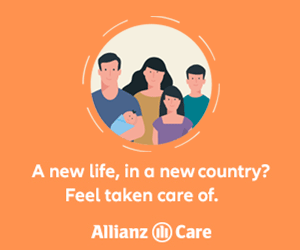Moving to San Marcos, Nicaragua
Last updated on Jul 10, 2023
Summary: Moving to San Marcos, Nicaragua: Expats, retirees and digital nomads talk about everything you need to know before moving to San Marcos.
What do I need to know before moving to San Marcos?
When we asked people what advice they would give someone preparing to move to San Marcos, they said:
"San Marcos, is a small town located in the Carazo department, known for its peaceful atmosphere and friendly locals. Before moving there, expats should be aware of several things. Firstly, Spanish is the primary language spoken in San Marcos, so it would be beneficial to learn some basic Spanish phrases or consider taking language classes. The cost of living in San Marcos is relatively low compared to many Western countries, but it's important to note that wages are also significantly lower. The town has a tropical climate, with a wet and dry season, so expats should be prepared for high temperatures and heavy rainfall during certain times of the year. Healthcare facilities in San Marcos are basic, so for serious medical conditions, you may need to travel to the capital, Managua. Public transportation is the most common way to get around, but it can be crowded and unreliable. The local cuisine is a mix of traditional Nicaraguan dishes, with a heavy emphasis on beans, rice, and meat. Safety can be a concern in some parts of Nicaragua, but San Marcos is generally considered safe. However, it's always important to take standard precautions to protect yourself and your belongings. The pace of life in San Marcos is slower than in many Western countries, which can be a significant adjustment for some expats. Finally, it's important to understand and respect the local customs and traditions, as Nicaraguans are generally very proud of their culture," commented one expat who made the move to San Marcos.
How do I find a place to live in San Marcos?
Please login to continue reading this article.
Not a member? Join Today (it's free).
About the Author
 Joshua Wood, LPC joined Expat Exchange in 2000 and serves as one of its Co-Presidents. He is also one of the Founders of Digital Nomad Exchange. Prior to Expat Exchange, Joshua worked for NBC Cable (MSNBC and CNBC
Primetime). Joshua has a BA from Syracuse and a Master's in Clinical and Counseling Psychology from Fairleigh Dickinson University. Mr. Wood is also a licensed counselor and psychotherapist.
Joshua Wood, LPC joined Expat Exchange in 2000 and serves as one of its Co-Presidents. He is also one of the Founders of Digital Nomad Exchange. Prior to Expat Exchange, Joshua worked for NBC Cable (MSNBC and CNBC
Primetime). Joshua has a BA from Syracuse and a Master's in Clinical and Counseling Psychology from Fairleigh Dickinson University. Mr. Wood is also a licensed counselor and psychotherapist.
Some of Joshua's articles include Pros and Cons of Living in Portugal, 10 Best Places to Live in Ireland and Pros and Cons of Living in Uruguay. Connect with Joshua on LinkedIn.
Other Questions:
- What should I pack when moving to San Marcos?
- Where should I setup a bank account in San Marcos?
- Will I be able to find a job in San Marcos?
- What is life like as an expat in your area?
- What do expats in San Marcos appreciate most about the local culture?
- What do expats find most challenging?
- Is there a lot of crime in San Marcos?
- Is there a lot of diversity? Are people in San Marcos accepting of differences?
- What are the schools in San Marcos like?
- How are healthcare services in San Marcos?
- What are medical services in San Marcos like?
- Are healthcare and health insurance expensive in San Marcos?
- What are emergency services like in San Marcos?
- Will I need to travel to see a specialist?
- Are common prescription medications available in San Marcos?
- How are local medical facilities in San Marcos?
- As a foreigner living in San Marcos, will I have access to public healthcare? What is it like?
- What have your experiences during the pandemic with the local healthcare system been like?

 San Marcos, Nicaragua
San Marcos, Nicaragua

